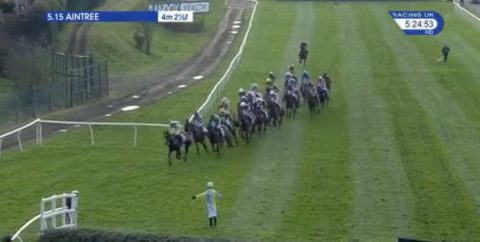Stewards enquiries – the fine line between thorough and fussy

BHA Head of Stewarding Paul Barton (pictured below) speaks about why the stewards sometimes have to hold stewards enquiries into the more innocuous raceday incidents. 
There has been some comment made in the last few days about the recent incident at Royal Ascot whereby the stewards held an enquiry to consider why a stalls handler appeared to throw water at Invincible Army, who was reluctant to go behind the stalls at the start of the Commonwealth Cup.
This has been perceived as petty and officious by the stewards, and the posting of a stewards’ enquiry notice on the website has been seen as a public rebuke. While we can understand that perception, we think it is worthy of more explanation.
Firstly, in terms of the incident itself. Put simply, we don’t want anyone to throw anything at horses to encourage them to load. Whether it is water, grass, sand, anything. Yes, this is partly due to public perception, but also – crucially – because we just don’t know how a horse is going to react to something being thrown at it. It is far more straightforward to have this as a blanket rule, rather than to say, for example, it is ok to throw water at a horse but not something else. Where do we draw the line? Do we need a list of acceptable items to throw at horses to encourage them to load? We believe that simply asking that nothing be thrown at horses is a supportable and fair position to adopt.
Ok you say, but why can’t the stewards just use their common sense? Couldn’t they have just had a word? There was no need to refer this to head office and start disciplinary proceedings was there? It is true that the stewards on the day sent a report to the BHA’s head offices for further consideration, but that does not necessarily mean that an investigation has been launched and it is being treated as a disciplinary incident. Part of the purpose of reports such as this is to allow what has happened to be reviewed after the event, without the distractions and time restrictions of everything else that goes on during a raceday, and so it can be logged for future reference. RaceTech provide the stalls team for this meeting and the Stewards do not have any sanction over them, as they do not employ them. The incident has now been looked at, and the only action that has been taken by the BHA is to ask Racetech to remind its teams of stalls handlers that they should not throw anything at horses during a race meeting. 
The crucial point here, and it is one that also came up in the aftermath of this year’s Grand National following the incident with Danny Cook after he had stood at Becher’s Brook waving horses around the bypassed fence, is that a lot of people assume that the triggering of a stewards’ enquiry automatically means a disciplinary procedure and punishment for those involved. This isn’t an unreasonable assumption, but the reality is that an equally important function for a stewards’ enquiry is to gather as much information possible about what has occurred. This was the purpose of the enquiry at Ascot last week.
So the next question is, why did we need to post an officious-sounding stewards’ enquiry notice about it if there was no suggestion that disciplinary action would be taken? Again, there was a similar reaction when the stewards at Aintree spoke to the jockey Danny Cook after the Grand National. It was suggested by some that this should have been done behind closed doors and no enquiry notice posted up, in order to avoid seeming like a reprimand. Again in this case there was no form of punishment afterwards, and no rebuke was handed out by the stewards, as was acknowledged by the jockey himself.
It is the stewards’ job to look into anything that happens at a race meeting which may merit further investigation. Once they’ve then decided to look at it, they have to write a stewards report about it. This is to show that an incident has been seen and dealt it, and the stewards can’t pick and choose what they publish. That would fall well short of the BHA’s approach of being open and transparent, which is asked for and expected of us – quite rightly – by the public, media, and participants. Would the public and media really want our stewards to start deciding that they should not post up details of enquiries that they held, in order to avoid seeming fussy? This is not an approach which we would feel comfortable with, as we work on the assumption that most people would expect the stewards to be open about everything that they do rather than picking and choosing what is made public. Hence why an enquiry notice is posted.
Perhaps sometimes the wording of those stewards notices could be slightly more gentle, in order to make absolutely clear that no rebuke is intended and we will take this on board and look to improve the style in which these type of incidents are reported. It can be challenging at major festival meetings, such as the Aintree Grand National Meeting and Royal Ascot, to always hit the right tone when wording notices, particularly because we are looking to get the notice out as quickly as possible.
We have worked hard in recent years to enhance the amount of information that we post in our stewards’ enquiry notices in order that the media and the public can better understand the decisions that we make and the reasoning behind them, and the @BHAStewards twitter feed is helping to get those decisions into the wider domain as quickly as possible. We want to continue to develop this and make sure you receive all the information you need from a raceday. So please forgive us if sometimes we seem fussy or officious – it is purely from trying to be thorough and transparent!
